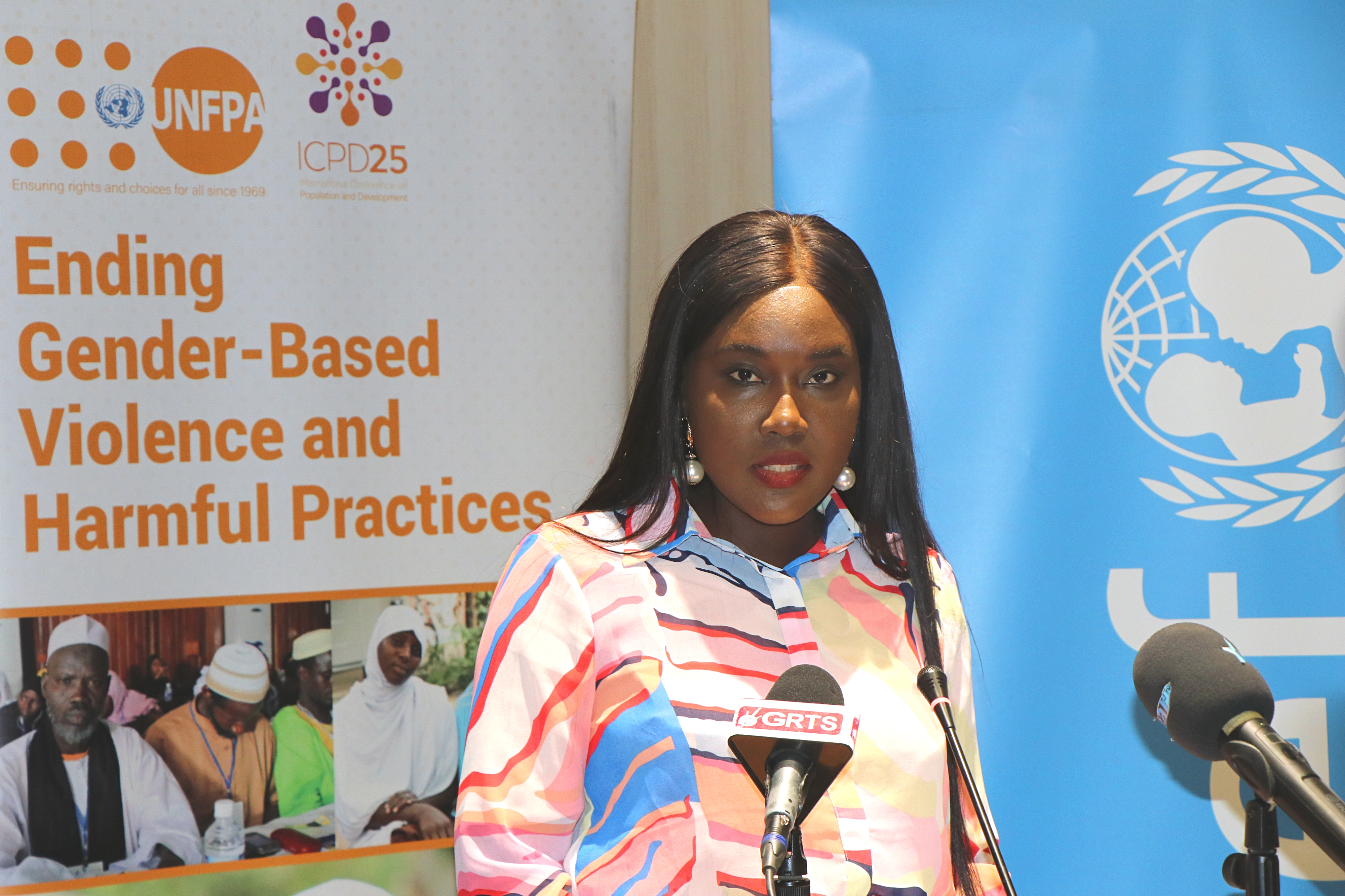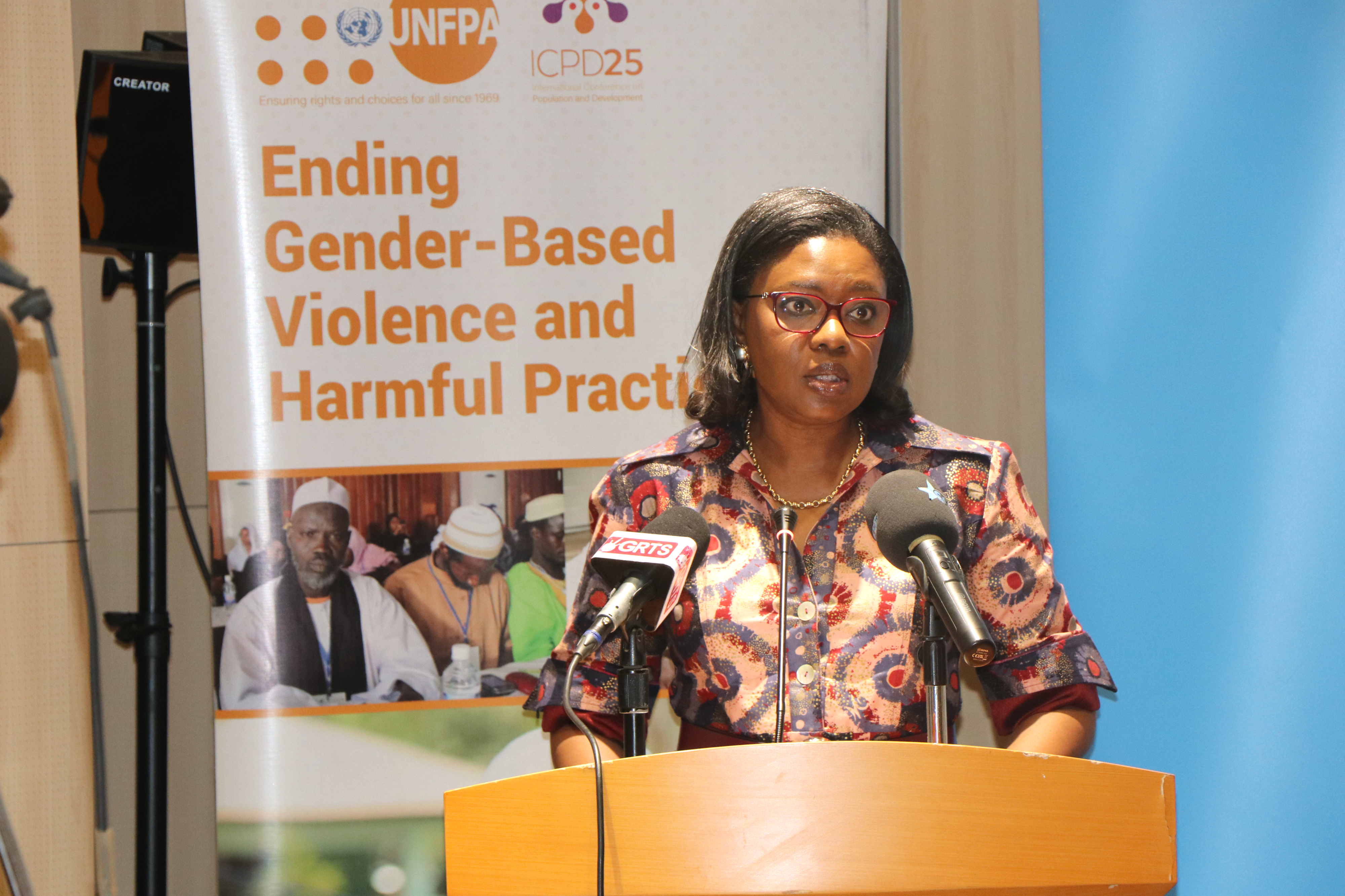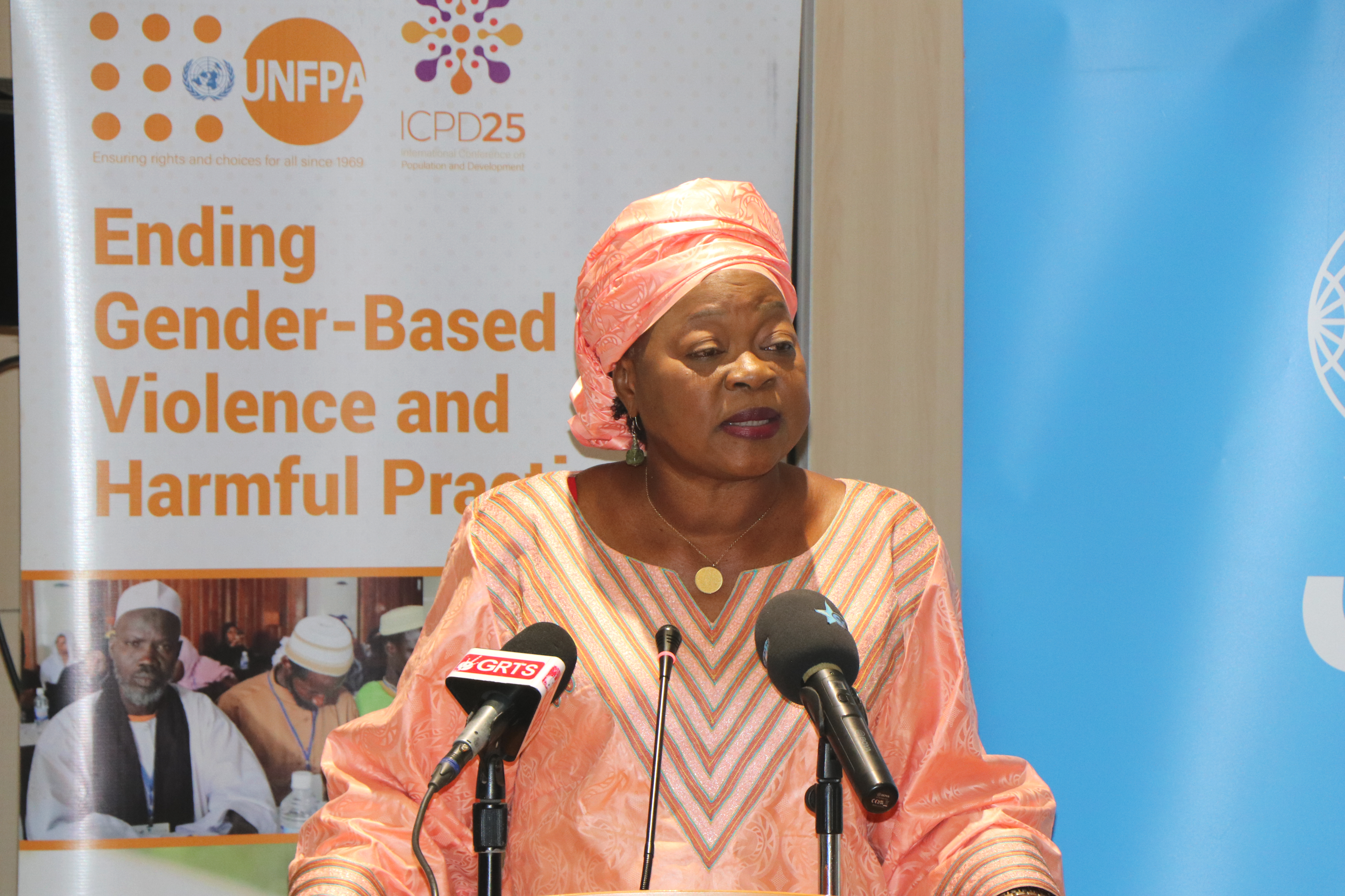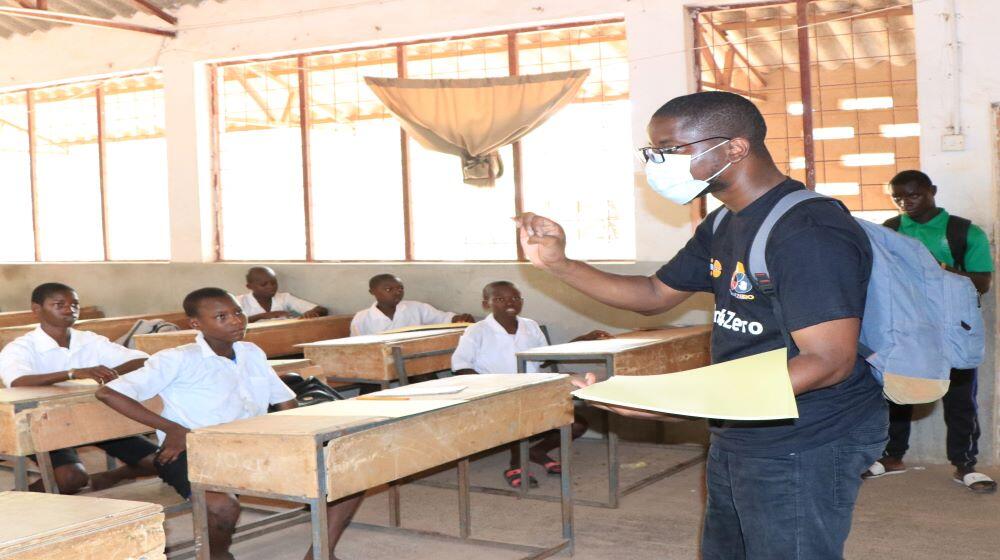It is estimated that 3 in every 4 women and girls in The Gambia today have undergone some form of Female Genital Mutilation (FGM). FGM is deeply ingrained in cultural norms and beliefs that guide daily life in many Gambian communities. It is a practice that has serious immediate and long-term implications on the sexual and reproductive health of women and girls, impairs their well-being, and hinders their development. Despite the tremendous success in promoting the abandonment of such practice through community participation and awareness campaigns, the adoption of legislation outlawing it, and other efforts, just 49% of women still hold the opinion that it should continue. Communities perceive it as a religious command, that it is a necessary procedure to maintain cleanliness, purity, marriageability, and a rite of passage into womanhood, which accounts for their conviction in its continuous practices.
In commemoration of the International Day of Zero Tolerance for Female Genital Mutilation on the global theme, “Partnership with Men and Boys to Transform Social Gender Norms to End FGM” UNFPA The Gambia in partnership with UNICEF, Wassu Gambia Kafo and the Ministry of Gender, Children and Social Welfare organized a high -level commemoration event on 6th of February 2023. The high-level event brought together Government and Civil Society actors, women’s groups, young people, and the media, among a range of others to demonstrate their solidarity with the rest of the world to collectively stand against all forms of harmful practices that affect women and girls globally, The Gambia in particular. The protection of the rights and well-being of women and girls is a collective responsibility for all, and as such, having stakeholders commemorate the event is a testimony to resolving and ensuring that no girl or woman goes through any form of violence and harmful practices.
Speaking at the ceremony, Ms Mariyann Jabang Director of Gender Equality and Women Empowerment from the Ministry of Gender, Children and Social Welfare highlighted the need for the elimination of FGM as it is essential, especially towards achieving a sustainable future.
This she believes enables women and girls to reach their full potential, health, and well-being.
Therefore, accelerating efforts to ensure that women and girls live in health and dignity and are protected from all forms of violence including Female Genital Mutilation is crucial to ensuring they live an empowered life free from fear.

Delivering her remark UNFPA The Gambia Country Representative Ndeye Rose Sarr illuminated that every day, girls are being subjected to FGM and more are at risk of being subjected to FGM in The Gambia. She highlighted that in the Gambia, girls are still not safe, girls are still undergoing FGM, and girls still do not have equal rights as boys and as such, we all have a role to play in the fight against Female genital mutilation.
To mitigate such risk, she emphasized the need to work with men and boys in order to promote positive masculinity as it helps in securing gender equality and ending all forms of harmful practices by ensuring a just and fair society for all.

In her remark, the Chairperson of the Women Council Madam Isatou Sawaneh Dea stressed that we are the custodians of the laws, therefore we must take responsibility for bringing justice to women and girls who are being subjected to such harmful practices.
Women and girls are crucial to our society’s development, and therefore we must be held accountable in ensuring there is gender equality she concluded.

The UNFPA and UNICEF Joint Programme engages men and boys in interrogating and challenging power dynamics in their own lives, as well as in their communities, while also seeking to empower them as partners in the elimination of FGM rather than simply as perpetrators of violence. In societies, women take the decision to have their daughters undergo FGM while men and boys may oppose the continuation of FGM, they may also have misperceptions about other men’s acceptance of FGM or view FGM as a ‘women’s issue’. For this reason, advocacy by men and boys continues to be a priority intervention and a key approach toward the elimination of FGM.
In the Gambia, UNFPA supports the Government of Gambia, CSOs to provide interventions that sought to engage religious leaders, men and boys, and traditional leaders to invest and mobilize resources in eradicating FGM in the country.
Media contact:
Faith Ememodo- Communications Associate, UNFPA The Gambia ememodo@unfpa.org


